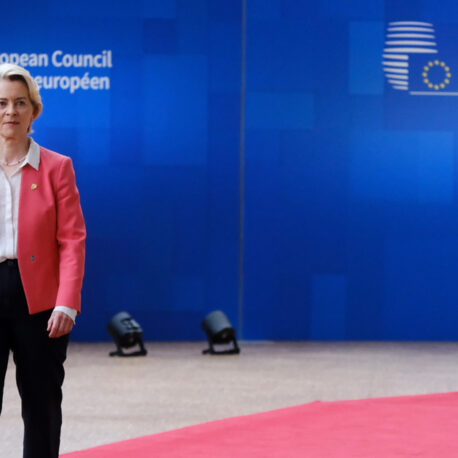
The European Commission has published its renewed sustainable finance strategy
The Finnish financial sector welcomes further development of the EU Taxonomy and improved transparency of ESG ratings
Even so, the substantial risk of overregulation must be taken into account
The commission strategy can be roughly divided into three elements:
- Further development of projects started in 2018, e.g. Taxonomy and Disclosure Regulation
- New initiatives such as standardisation of debt and investment instruments, digital technology in sustainable development, and further transparency and comparability of sustainability ratings
- Amending the risk management framework to ensure companies assess sustainability factors in their risk management
Finance Finland (FFI) welcomes the Commission’s renewed sustainable finance strategy and is looking forward to further progress on sustainable finance.
The renewed sustainable finance strategy is broader and more ambitious than the previous action plan published in 2018, which means it will generate substantial amounts of legislative work for the coming years as well. FFI considers some of the new measures commendable, but at the same time the risk of overregulation looms over the development of sustainable finance.
“In recent years, legislative work on sustainable finance in the EU has been carried out at a hurried pace, and this has not always left enough time for thorough impact assessment. Moreover, deadlines have been so tight that they have been nearly impossible to meet, and companies have been left in an unclear regulatory environment as a result. Hopefully these new measures will be implemented in a more controlled way”, says Elina Kamppi, head of sustainability at FFI.
The Commission’s strategy can be roughly divided into three categories: further development of projects started in 2018, new initiatives, and sustainability risk management.
Further development of projects started in 2018
The EU Taxonomy for sustainable activities will be expanded, the Sustainable Finance Disclosure Regulation will be further specified, sustainability responsibilities of asset managers will be clarified, and international cooperation will be enhanced in order to advance sustainable finance globally.
“The EU Taxonomy and disclosure regulation are particularly important, because they lay out the foundation for the entire system of sustainable finance”, Kamppi notes.
New initiatives
The Commission proposes standardisation for various sustainable debt and investment instruments such as green mortgages and social bonds. Moreover, the Commission aims to combine sustainability and technological progress more tightly, promising to have proposals by 2023 on how digital technology can support the goals of sustainable development.
ESG rating policies are being reviewed with the aim of improving the transparency and comparability of sustainability ratings. The Commission is also considering implementing rules for setting and monitoring sustainability goals in companies. If implemented, this would mean that companies’ sustainability commitments would no longer be defined only by the companies themselves.
Sustainability risk management
The Commission proposes new powers for the European Banking Authority as well as the European Insurance and Occupational Pensions Authority in the context of sustainability factors in corporate risk management such as capital requirements. It is necessary to examine whether sustainability risks – for example the rapid loss of value of specific asset classes – are already sufficiently taken into account in the currently used risk scenarios.
“FFI has taken a waiting stance on the matter, because the EBA’s report is not yet completed. The Commission’s new strategy moved the deadline for EBA’s report from 2025 to 2023”, Kamppi comments.
The Commission also published its proposal for a standard for European green bonds and the delegated regulation regarding the reporting obligations of the EU Taxonomy.
Looking for more?
Other articles on the topic

Hooray for simplifying regulation! But obligations must be streamlined thoughtfully, without compromising environmental goals

Putting EU citizens’ savings to work – Commission seeks growth by promoting saving and investment

Preventing biodiversity loss must be given top priority – also in business

Sustainable finance reporting requirements must not be reduced at the expense of the environment

